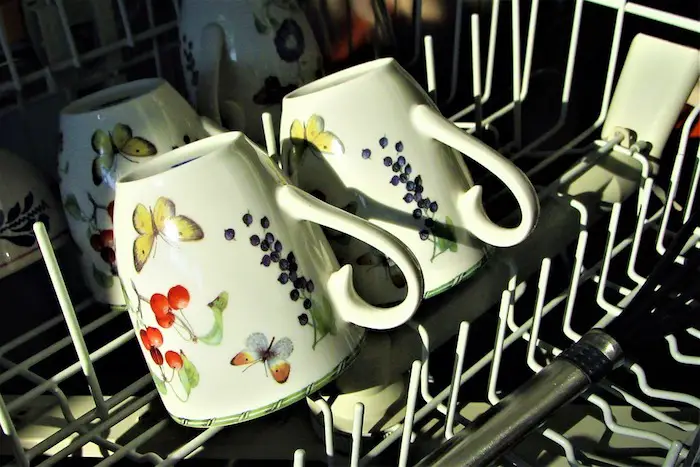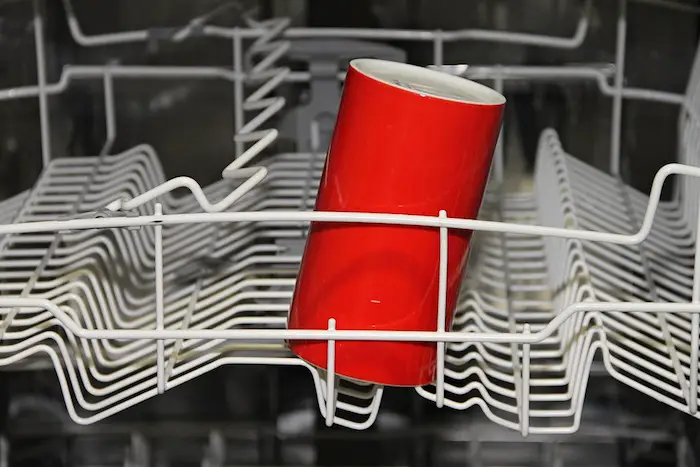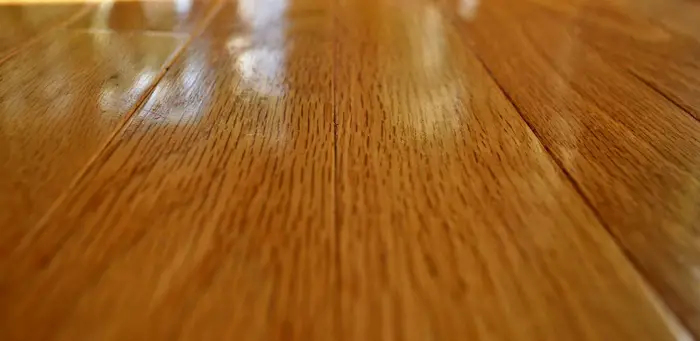When was the last time you took a look “under the hood” of your dishwasher? Things like grime, grease and soap buildup could be creating a very murky situation in the place where you clean your dishes, cups, cookware, bakeware and silverware. How can you trust your dishes to be cleaned by a dishwasher that doesn’t look or smell clean?
The bottom line is that most people are neglecting their dishwashers. This is unfortunate because dishwashers are not self-cleaning devices. In fact, failing to manually clean your dishwasher properly could put your short-term and long-term health at risk.
When was the last time you cleaned your dishwasher? For some people, the answer is never. Let’s talk about how to correct that mistake easily.
The Ugly Truth About What’s Inside a Dishwasher
A big sign that it’s time to clean your dishwasher is an odor. Do you detect an odor whenever you pull down the door of your dishwasher? This actually isn’t normal.
You may have even stopped noticing a stinky dishwasher if you’ve lived with it long enough. It’s highly likely that food particles, grease and soap remnants have formed gunk deposits that are embedded into the nooks inside your dishwasher if there’s a smell. Unfortunately, old food particles can lead to bacterial and fungal growth that will contaminate your dishes.
One big misconception is that the high temperatures and detergents used in dishwashers create a sterile environment. The reality is that harmful microorganisms and germs can still grow in these conditions. What’s more, the water that goes through a dishwasher can’t reach clogged areas.
The good news is that most people won’t become ill from dirty dishwashers. Of course, that doesn’t mean that we want to eat off of plates and forks that are potentially covered in bacteria and fungus. The need to keep a dishwasher fully sanitized becomes more important if your household contains children, the elderly or anyone with a compromised immune system.
How Having a Dirty Dishwasher Can Impact Cleaning Performance
Sanitation isn’t the only reason to be concerned with maintaining a clean environment inside your dishwasher. A dirty dishwasher can experience suboptimal performance. That means that you will find unattractive particles on your plates and dishes even after they have been “properly” cleaned.
Let’s not forget that a dirty dishwasher can be expensive. Failing to keep a dishwasher clean can lead to failure of parts or the entire dishwasher. You could be stuck with repair or replacement costs simply because you weren’t aware of the fact that dishwashers need to be cleaned on a regular basis.
One thing that many people are shocked to discover is that the cost of having someone come out to look at a broken dishwasher can be very high. In fact, just one visit from a repair expert can represent a huge percentage of what the cost would be to get a new dishwasher. You may ultimately end up having to purchase a new dishwasher even after paying for labor and parts if the wear and tear has been too extensive.
Keeping your dishwasher clean is essential for the overall cleanliness of your kitchen. However, the actual method for properly and safely cleaning a dishwasher is a mystery to many people. Let’s take a look at the proper way to clean a dishwasher.
Is There a Natural Way to Clean Your Dishwasher?
You may be researching natural ways to clean your dishwasher because someone recommended that you use vinegar to get the job done. While this advice sounds good, it’s actually based on misinformation. Let’s talk about why putting vinegar in your dishwasher could be a disaster for your kitchen.
Why You Should Never Use Vinegar in a Dishwasher
A lot of people are interested in finding natural ways to clean a dishwasher. This makes sense because the last thing most of us want to do is use harsh chemicals when cleaning the appliance that holds the things we use when eating almost all of our meals. However, many people are making one very big mistake when it comes to finding natural ways to clean their dishwashers.
You will find many recipes for using vinegar as an all-natural cleaner for appliances if you search the Internet. In fact, most people assume that vinegar is the best option for cleaning a dishwasher without using store-bought products. Unfortunately, this is not the case at all.
Vinegar is actually very harmful to dishwashers. The danger has to do with the very strong acidic nature of vinegar. Using vinegar regularly to clean your dishwasher is almost guaranteed to lead to a costly breakdown down the road.
Vinegar has a pH of around 2.0. It turns out that vinegar’s acidic nature is especially damaging when it comes to some specific components within your dishwasher. Those tiny rubber gaskets and plastic hoses that keep everything running will essentially disintegrate after repeated exposure to vinegar.
The disintegration caused by vinegar can accelerate if you don’t thoroughly rinse food particles from your dishware. There’s even a chance that the items you place in your dishwasher could be ruined. Unfortunately, salt remnants from bits of food will mix with vinegar to discolor things like mixing bowls, utensils and pans.
How Frequently Should You Be Cleaning Your Dishwasher?

Frequency matters when it comes to keeping your dishwasher clean. The general recommendation is to clean your dishwasher at least once per month. This will help to keep your dishwasher working in optimal condition.
The Best Way to Clean Your Dishwasher Without Vinegar
You may be wondering exactly how you should be cleaning your dishwasher now that vinegar is off the table as a natural cleaning solution. Many people use vinegar because they are focused on being able to “rinse” the entire dishwasher at once by simply running a cycle through using vinegar in place of dish detergent. This actually isn’t the proper method.
Taking an “all-at-once” approach to cleaning a dishwasher isn’t the most effective way to get the job done. You won’t actually be performing a deep cleaning unless you focus on the individual parts of a dishwasher. What’s more, you won’t need to pile on the cleaning products or rely on the acidity of vinegar to get a dishwasher fully clean once you know the proper technique.
It is beneficial to focus on a strategy you can use for cleaning all of the different parts of your dishwasher separately instead of just rinsing the entire appliance at once. That’s because the small and intricate parts inside your dishwasher are prone to buildups and blockages. A multi-step approach creates better results and optimal dishwasher performance.
Which parts of a dishwasher need to be individually cleaned? You may not realize that certain parts of your dishwasher do a lot of work throughout every cleaning cycle. Here are the main parts that need special attention due to heavy per-cycle usage:
- The filter.
- The seal.
- The water sprayers.
- The silverware basket.
Simply running vinegar through the appliance won’t necessarily get these parts cleaned! Let’s take a look at a more detailed breakdown of how to clean each part of your dishwasher. Don’t be surprised if you see a significant increase in performance after giving each part of your dishwasher the attention it needs.
The Filter
The filter in your dishwasher is the place where all of the food particles that were attached to your dishes get caught. Items that get caught will stay caught. Unfortunately, many people don’t realize that a clogged filter can cause your dishwasher to have overflow issues that can make a mess of your kitchen.
Take a look at the manual that came with your dishwasher to see the proper way to remove your filter. The typical method is to just unscrew the knob and pull out the filter. You shouldn’t have to tug or apply serious pressure.
The next step is to simply rinse the filter using dish soap and warm water. The soap product that you use to wash dishes at your kitchen sink should be just fine. Just make sure you’re rinsing the filter fully with clean water before allowing it to air dry.
The Seal
It’s now time to take a look at the seal. If you don’t already know, the seal is the part that keeps water inside your dishwasher. The seal is really the only thing that prevents water from leaking onto the floor from your dishwasher.
You don’t have to remove the seal the way you remove the filter. You’re just going to want to scrub it using a soap-free sponge with warm water. You’ll then need to use a dry cloth to wipe down the newly cleaned seal.
Make sure that the seal is as tightly fastened in place when you’re done as it was when you began. Unfortunately, a loose or improperly placed seal can cause a serious leak. Watch your dishwasher during the first cycle after you wash your seal to make sure leakage isn’t occurring.
The Water Sprayers
It is now time to move your attention to the water sprayers inside your dishwasher. The good news is that you only have to worry about cleaning this aspect of your dishwasher about once every six months. However, some people like to tackle this task whenever they clean the other components of the dishwasher.
Cleaning the water sprayers inside your dishwasher is fairly simple. Find a toothpick or something of similar size and shape. You can then use your toothpick or tool to gently pry food particles that have been caught inside the sprayer holes.
You don’t have to remove or shift the sprayers to perform a thorough cleaning. Jostling the sprayers too much could cause them work improperly. It’s a good idea to inspect the inside of your dishwasher following the first cycle after you clean the sprayers to make sure water is still being directed where it should be directed.
You may notice a big positive change in performance once you clean the sprayers. Cleaning out the sprayers actually allows more water to come out at once. This will greatly increase the cleaning power of your dishwasher.
The Silverware Basket
Have you ever found stray particles of food stuck to your forks or knives after removing them from the dishwasher? It’s possible that your silverware basket hasn’t been properly cleaned. The process of simply going through a full washing cycle won’t necessarily clean your silverware basket because it’s so easy for particles to get trapped in a basket’s grated design.
How often should you wash the silverware basket in your dishwasher? It is recommended that you wash it about once a week. Here’s what you’ll need to properly wash your silverware basket:
- A bottle brush.
- Dish soap.
- Warm water.
It’s necessary to remove your silverware basket from your dishwasher in order to clean it properly. You can place it in your sink or some type of special cleaning basin. Simply use a soft sponge and the ordinary dish soap you use to wash dishes at the sink every day.
You can allow the basket to air dry on the counter until the time comes to place it back inside your dishwasher. Some people find that removing the silverware basket after every cycle to simply give it a quick rinse cuts down on the amount of residue that gets left behind. This is something to consider if you routinely find food particles on your utensils after removing them from the dishwasher.
The Latch
Most people forget to look at the door latch that is used every time a dishwasher opens or shuts. Unfortunately, this component can become rusty over time. It’s not a bad idea to take a look at yours today to see what kind of shape it’s in at the moment.
Are you noticing rust? The good news is that there is something you can do to take care of the problem without replacing the latch. What’s more, you may actually want to use this technique to avoid future rust damage even if you’re not noticing rust damage yet.
Maintaining a dishwasher latch requires a slightly different effort than what you need to put into cleaning some of the other interior parts of your dishwasher. The trick is to create a seal that will prevent additional damage. Here’s a look at what to gather before working on your latch:
- A “sponge” made from stainless steel or steel wool.
- A cotton cloth.
- Clear fingernail polish.
You can start by rubbing down any rusty areas on the door latch using your steel sponge. You will then want to rinse the latch to make sure that any steel remnants have been rinsed away. It’s then time to buff the latch using a dry cotton cloth.
The next part is a handy trick that few people know about. You can actually use clear fingernail polish to create a nice waterproof seal over your latch. This easy-to-do seal will help to prevent any further rust growth on your dishwasher latch!
What About Stopping a Foul Odor That’s Coming From Inside Your Dishwasher?
Are you noticing a smell that’s coming from your dishwasher? Don’t reach for the vinegar so quickly! You can actually take care of the smell using just a little bit of baking soda.
Sprinkle just a little bit of baking soda on the floor of your dishwasher. You should let the baking soda sit at the bottom of the dishwasher with the door closed for a few hours. The final step is to run a cycle with the baking soda still in place without placing any additional items inside the dishwasher.
Running a load using just baking soda should eliminate any unpleasant odors that you’re detecting whenever you open your dishwasher. However, you don’t have to wait until something smells “off” before you decide to clean your dishwasher with baking soda. You can do a load with baking soda every few months to stay ahead of foul odors.
Clean Your Dishwasher Without Causing Any Damage
Nothing is worse than worrying that a foul odor is going to waft out of your dishwasher when you have company visiting. What’s more, there’s always a chance that a guest could find food particles stuck to their fork just before they take a bite of the meal you’ve prepared. Make sure you’re keeping a clean dishwasher that won’t embarrass you!
Is today the day you’re going to give your dishwasher the attention it needs? It’s clear to see that it is really important to skip the vinegar if you’re looking for a way to clean your dishwasher thoroughly and effectively without causing expensive damage. The reality is that the benefits of using vinegar to clean your dishwasher do not outweigh the potential long-term risks of causing certain components within the appliance to disintegrate and fail.
The final thought on this is that trying to clean your entire dishwasher all at once with vinegar just isn’t going to provide optimum results. You should instead place the focus on cleaning individual parts using simple products like sponges, cloths and the gentle dish soap you already use every day. A dishwasher thrives when each part can do its part!


